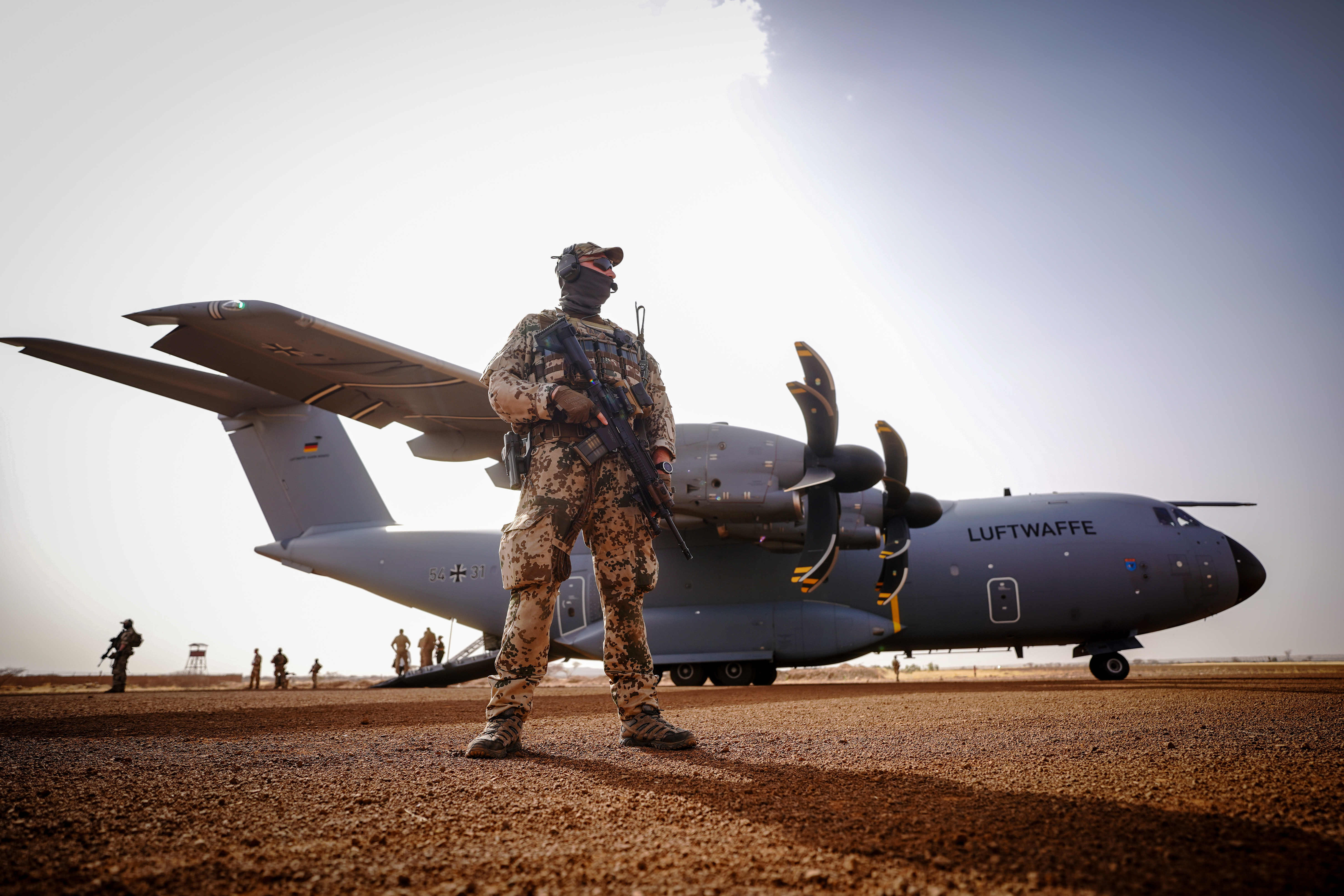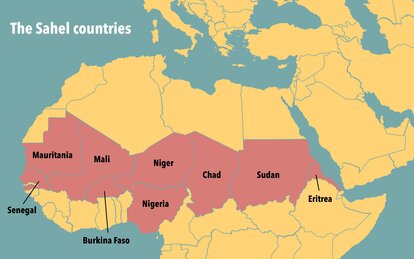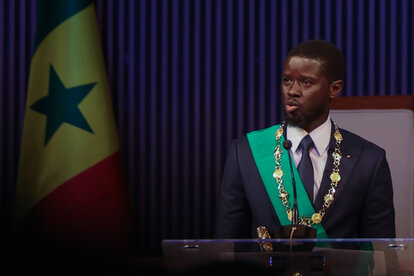West Africa
ECOWAS, AES and the German troop withdrawal

A Bundeswehr soldier at the Niamey base.
© picture alliance/dpa | Kay NietfeldTemperatures are rising in the Sahel. The climatic temperatures anyway, which have been causing unbearable heat and countless deaths for months. And there is a heated atmosphere between the countries in the Sahel region. The military coups of the last four years in six West African countries have led internally to divided societies, regionally to changed alliance constellations and internationally to a turning away from the West, especially France, and an increased dependence on "new" partners such as Russia, China and others.
One main anchor of stability,the ECOWAS, is losing legitimacy and is increasingly being called into question in some countries. Intended 50 years ago as an instrument to strengthen (West) African integration, the economic association ECOWAS with its 15 member states has promoted the regional economy for decades and guaranteed free trade in services and goods, as well as freedom of travel and visas for today 340 million people in the region.
West Africa offers much of what humanity needs today. Endless energy, rare earths, coveted minerals, a young population willing to work, land, lots of land! which under normal circumstances would allow agricultural self sufficiency.

Countries of the Sahel region in Africa
© ShutterstockPlaything between extremism, populism and geopolitical interests
And yet, or precisely because of this, the region is not at peace! A pawn between North and South, a victim of religious extremism and jihadist terror, of interest-driven military interventions by Western and Eastern actors, corrupt elites and exploding demographics. The countries are increasingly falling prey to the populism of local "rebels" or military leaders who promise more regional sovereignty, more economic independence and a "transition". Only to then follow in the corrupt and undemocratic footsteps that they previously fought against.
This can be observed in the three countries Mali, Burkina Faso and Niger, which have turned their backs on ECOWAS in 2023 with the Alliance of Sahel States (AES). This intention to leave was confirmed last weekend at the first AES summit in the Nigerien capital Niamey and the transformation of the AES from an alliance to the Confederation of Sahel States.
With the confirmation of its withdrawal and the choice in timing, the AES gave ECOWAS two public slaps in the face. The latter had scheduled a summit meeting for the same weekend in Abuja (Nigeria), at which dealing with the three breakaway Sahel states was at the top of the agenda.

he newly elected President Bassirou Diomaye Faye is seen as a symbol of the anti-establishment.
© picture alliance / Anadolu | Cem OzdelSenegal and its newly elected President Bassirou Diomaye Faye have been chosen as facilitator, as the bridge builder between ECOWAS and AES. Young, representating a political anti-establishment and catapulted to power with a pan-African, sovereigntist approach, the Senegalese president, unlike the AES, has placed his political and economic focus on the region rather than against it. Faye warns that the time has come for a redefinition of relations with the West, while at the same time reforming the ageing economic and security organisation ECOWAS. More regional sovereignty is not possible without, but with a strong ECOWAS.
Germany withdraws soldiers from Niger: a symbol of volatility in the Sahel
The surprising announcement on that very week-end of the complete withdrawal of the German soldiers still stationed in Niger is symptomatic of the difficult circumstances and the volatility of relations in the Sahel. The German Defence Minister's goal of maintaining Niger as a cold base for Germany in the Sahel and thus a foot in the door of the AES, has thus failed.
The German troops and their advisors were denied the usual protective instruments that would have made a deployment justifiable. The fact that Niamey refuses such basic requirements as immunity for the German soldiers clearly shows how serious the Nigerien intention is to follow up on the demonstrated desire for autonomy with appropriate action.
Germany is a valued country in the Sahel. Made in Germany is considered reliable and competent here when it comes to military advice and cooperation. However, when it comes to asserting a military presence and Western influence, the AES countries are determined: not with us (anymore)!
The Sahel needs support and West Africa has immense potential. If we do not want to leave this region to other players who threaten the West and its values not only in Europe but also on the African continent, then a German presence makes sense. But not at any price! Concentrating on the more stable coastal states and supporting the regional alliance ECOWAS seems to be the way forward today.
